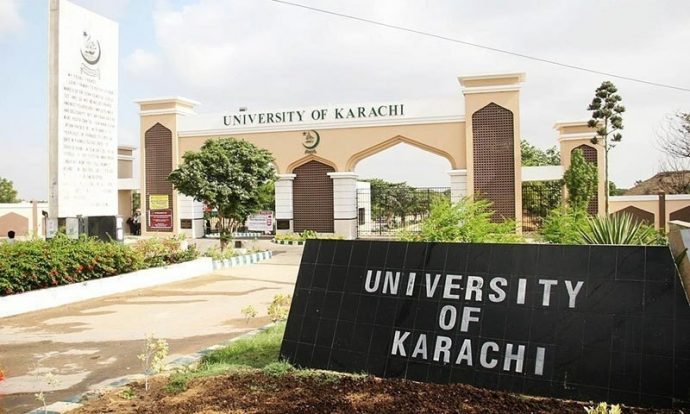
Encourage the agri-industrial sector to create jobs; suggests economist Dr. Kaiser Bengali.
Renowned economist Dr. Kaiser Bengali said that in order to raise people’s earnings and lift them out of poverty, it was essential to support the industrial and agricultural sectors.
He lamented, “Unfortunately, we have destroyed our industries over the past forty years, and no investment has been made in agriculture and industries for the last forty years.”
During a talk on Friday at the Applied Economics Research Centre (AERC) of the University of Karachi‘s Rangoonwala Conference Hall, he recommended a Charter of Economy for Sindh.
Dr. Kaiser Bengali was invited by the AERC to discuss the province’s actual social and economic issues as well as solutions for people to escape their current predicament. “At present, we have nothing to generate revenue because factories are closed, and installation of new industries has ceased,” he continued. “We need to facilitate setting up of industries for generating revenue as well as employment.” He suggested that we create industries under public-private partnerships rather than depending solely on the private sector. Increasing employment growth is a prerequisite for improving GDP growth.
Dr. Bengali went on to say that social protection and the welfare and prosperity of the populace are the state’s top priorities. In Hyderabad, 80% of the buildings are unfit for taxation, and 60% of the buildings in Karachi are in disrepair. There hasn’t been a single housing program for the middle class and impoverished since 1977. It’s not a lack of money but rather a flaw in the country’s system; we must cut costs and make the necessary corrections.
The economist also urged changes to the pension scheme, pointing out that 60% of Balochistan’s budget is allocated to pension payments. He noted that Sindh’s administrations needed to ensure family and macroeconomic security as well as effective flood management. He recommended that efforts be focused on identifying new resources and that regional and urban development be prioritised. He says the Roti, Kapra aur Makaan, encapsulates the basic desire of the people, so the state’s first responsibility is to ensure food security. It also conveys the idea that the most basic foods, such as wheat, pulses, onions, cooking oil, vegetables, and spices, all need to be grown in the province and that Sindh is capable of producing them.
In order to guarantee sufficient food production, Dr. Bengali suggested allocating district-specific land and offering growers incentives in the form of fair returns. Showcasing sugarcane as a crop that grows well in coastal areas, he suggested restricting its cultivation to such areas in order to free up some 200,000 hectares for other vital crops.
He emphasized the necessity of creating jobs, especially in the agricultural and industrial sectors, in order to survive, and he emphasized the building of comprehensive infrastructure and flood prevention measures. To stop erosion and make floodwater evacuation easier, Dr. Bengali advocated for the clearance of kacha encroachments and the creation of forest belts along the River Indus.
In order to reduce the gap between rural and urban Karachi, he promoted the designation and ranking of Rural Growth Centres (RGCs) as key locations for the development of social and economic infrastructure. Market centres, industrial parks, healthcare facilities, educational institutions, and high-quality housing should all be found in each RGC.
Dr. Bengali promoted infrastructure development, incentives for business, agriculture, and social security, and highlighted the significance of livable cities in luring educated youth and promoting development. In addition to advocating for a decentralized local government structure with an equitable fiscal distribution system based on efficiency, he urged reallocating resources from non-development to priority development regions.
Professor Dr. Khalid Mahmood Iraqi, the vice chancellor of KU, responded by pointing out the economic downturn brought on by inconsistent policy and the necessity of proactive grassroots initiatives to address societal issues.

Content writer, educationist, teacher, researcher, social media manager, and a SEO manager from lahore. She has been working as a freelance academic and non-academic writer for more than 20 years now. She has a passion to learn new things and has a knack for writing and she combines both things to produce write ups she pours her heart out in.

